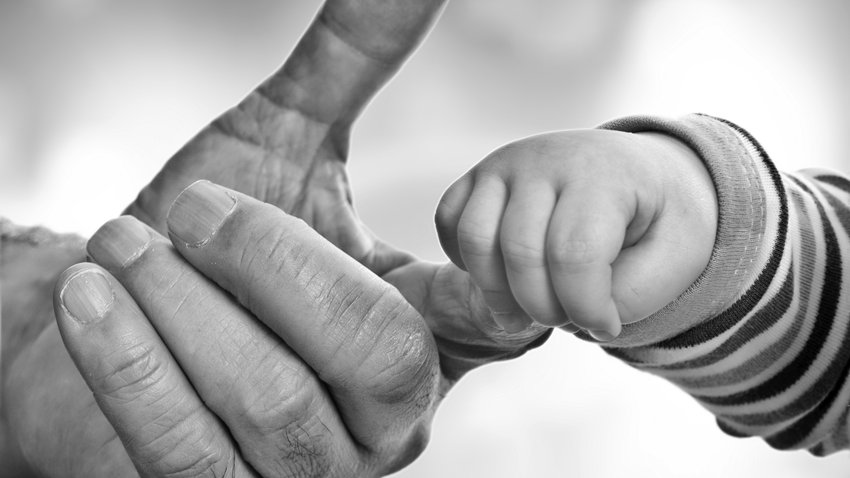
THE TRUTH ABOUT GRANDDAUGHTERS AND GOD
I don’t mind admitting that putting our little just-turned-one granddaughter Ella on a plane this past Sunday wasn’t just about tears, but also about an ache in the heart that I really hadn’t expected. After all, Karen and I knew this day would be coming sometime. Having our son Kirk and Chelsea just three miles up the road from us these past few years has been a parents’ delightful bonus. But when Ella was born a year ago, we were joyfully ushered into the glorious dimension of grandparenthood. And what’s not to like about having a precious little red-head granddaughter at your home nearly every week, while before your wondering eyes she grows and blossoms! To smother with love and kisses and prayers—isn’t that why God invented grandparents? So a few weeks ago, when Kirk accepted the invitation to head up physician recruiting at the 450 bed Salem Hospital (Oregon), the countdown to the inevitable began. But hey, isn’t this what happens to everybody? I mean—life goes on—families can’t stay close by forever—so not to worry—there’s always Skype. If I had even subconsciously entertained the slightest notion of such thinking, trust me—it all vanished when it came time to say Good-bye Sunday afternoon at O’Hare. When we pulled back into our driveway that evening and climbed the stairs to the living room, Ella’s blanket was still on the floor, covered with her kaleidoscope of toys that were her favorites when she came to visit Papa and Grammie, and her empty high chair nearby—all of it corroborating evidence that the tears and the ache had not been imagined. So where does it come from, this subterranean welling up of such poignant and too many times painful emotion when we’re separated from those we love? If only we didn’t become so attached to one another, there wouldn’t have to be tears and an ache inside, would there? “‘I grieve for you, Jonathan my brother; you were very dear to me’” (2 Samuel 1:26). The truth is, such deep emotion is both transgenerational and transcultural. It is the human birthright, the embedded DNA of the divine Creator Himself. God is a Being questing for friends, in the words of Clark Rowland. Being fashioned in His image means that our own kaleidoscope of emotions can be traced back (or up) to the Eternal heart. The two-word brush-stroke on the canvass of Lazarus’ death and resurrection still tells the truth about God: “Jesus wept” (John 11:35). Not only over the separation of death. But over the separation of rejection, loneliness, unrequited love and distance. When our hearts ache, it is corroborating evidence that the Heart that called us into existence does, too. “In all our affliction, He is afflicted” (Isaiah 63:9). And because He is, the very presence of relational pain is itself the union of the divine with the human. Tears and heartache—no matter their cause—flow from the sacred capacity to love so deeply it can actually hurt. Just like grandparents. Just like God.